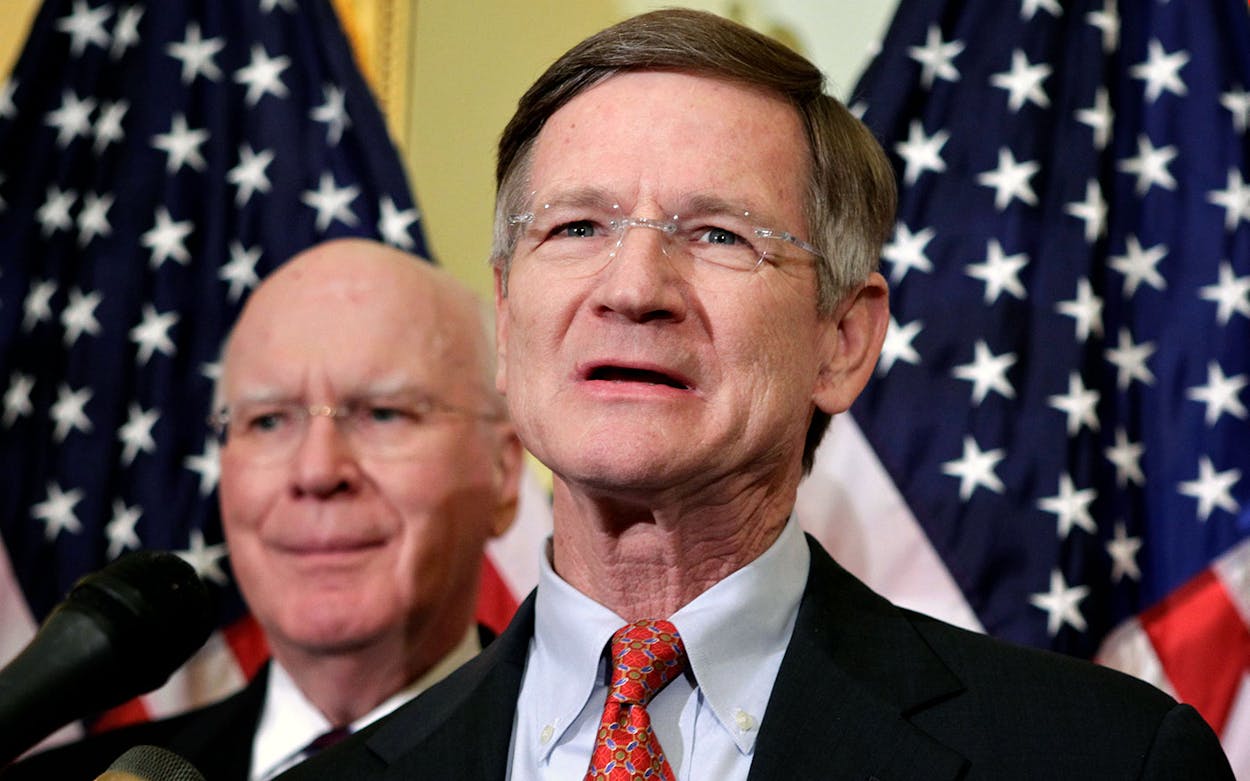Congressman Lamar Smith (R-San Antonio), like a number of members of his party, has been fairly quiet on the investigation into the Trump campaign’s ties to Russia. In May, he told reporters that he didn’t think the appointment of a special counsel into possible Russian collusion was necessary (though he added that Robert Mueller was a good choice, if one was necessary). He hasn’t had much of anything to say about the prospect of Russian interference in the 2016 election via social media or hacking, either. But he does have one interest in Russia as a force weighing in on American business: the representative (who’s raised more money from the oil and gas industry than any other sector during his time in office) sent a letter to Facebook, Twitter, and Google last week to inquire about Russian entities potentially buying anti-fracking ads on the social networks. As the Houston Chronicle reports:
Smith, a San Antonio Republican, is seeking information on whether the Russian government or affiliated entities were behind the ads as part of what Smith says is “efforts to manipulate the U.S. energy market.”
Earlier this month Facebook disclosed a Russian company affiliated with the the Kremlin had purchased more than $100,000 in political advertisements on controversial issues like immigration and gay rights.
“In light of Facebook’s disclosure. . . it is likely that Russia undertook a similar effort using social media to influence the U.S. energy market,” Smith said in a statement. “Social media platforms, such as Twitter and Facebook, have the ability to serve as an effective propaganda arm conveying specific messages to geographically targeted audiences.”
Smith’s comments about the likelihood of Russian efforts to influence the energy market are offered without specific evidence, but he’s not wrong that the foreign power does have a vested interest in not just American politics, but also oil and gas in the U.S.—and there have been questions from politicians of both parties about whether that included funding anti-fracking efforts, too.
The letters Smith sent to the three companies come shortly after Facebook revealed that Russian sources spent at least $100,000 on ads targeting American voters in 2016, and this isn’t the first time that Smith has attempted to respond to revelations about Russia and the Trump campaign by talking about the energy market. In July, he sent a letter to the Treasury Department pushing for an investigation into environmental groups that he accused of receiving Russian funding as headlines circulated about the Trump campaign’s ties to the country. And Smith’s letter comes at a time when two congressional panels are already investigating foreign-linked ads, which suggests that if his claims are true, they’re likely to come out as part of the current investigation.
It’s certainly not outside the realm of possibility that Russian propaganda efforts within the U.S. include campaigning against fracking. While experts agree that the environmental risks of fracking are real, the Russian government may be publicizing those risks for reasons that have less to do with the quality of the groundwater in Pennsylvania or the prevention of earthquakes near Denton. Its strategy may have more to do with pushing against American energy independence and maneuvering to prevent “challenges to profitability” of Russian energy companies. Still, it’s interesting that Smith’s primary probing into Russian interference in domestic issues is so narrowly cast, fits into his existing narratives around environmentalists, and makes “likely” assumptions before it’s received any evidence.
- More About:
- Energy








